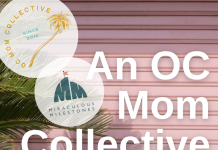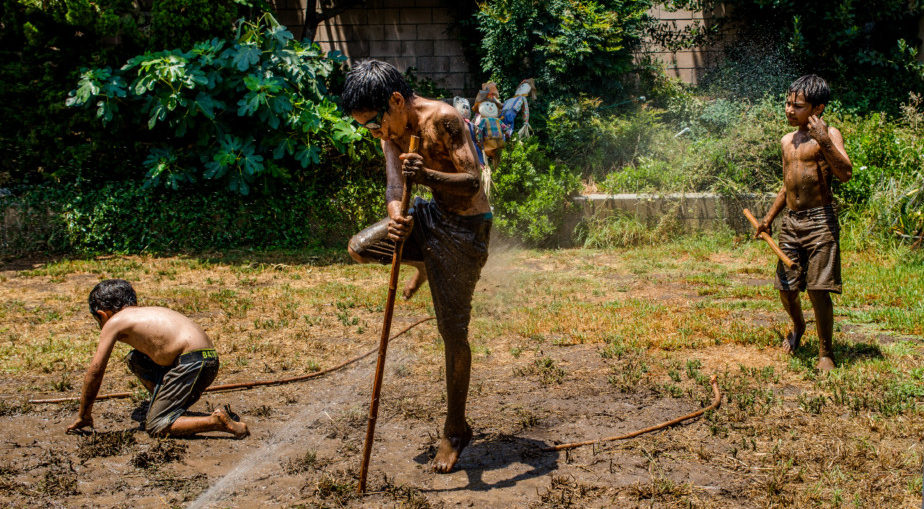The holidays are coming, which as a mom can bring a lot of stress and grief of its own kind. However, for those families that may have experienced a death in the family, the holiday prep can look a lot different.
Navigating my own grief as well as helping my clients has a different significance and importance now that I have children of my own.
I read a nice guide to children and grief by a Chaplain named Brian Shaffer and decided to adapt it to be more universal and mom-friendly. Therefore, these are my original thoughts on other’s ideas, with a few of my own thrown in there.
The holiday season seems to take over, it is everywhere we look.
For many, this is a time of excitement and joy, but for children who have lost a parent, sibling, or another significant person in their lives it might be harder to feel the joy. For these children, the holidays can be an emotional rollercoaster. Children are about the here and now. This is the worst thing right now, this is going to be the worst holiday because it is going to be different.
Children often receive a message that they need to be ok, smile, play, “act like a child,” in other words they are discouraged from showing their grief.
We don’t always recognize the child’s level of grief but it is there. We can help children adjust to the changes that are sure to come in their holiday experiences.
As the holidays approach, adults in the child’s life can be distracted by the business of the holidays as well as their own grief. We encourage the adults to take time to observe and communicate with the grieving child about the ambivalence they might be feeling towards the holidays.
This can be a painful time for all bereaved but it can also be an opportunity to honor and remember the person who died and that can be healing to one’s grief.
The following are some ideas about how to help grieving children deal with the holiday season:
- Include the children in communication and decisions about the holidays. This is a way to know where any worries about the holidays may lie. Explore what they are looking forward to and what areas they may need extra support from their adults. Let them know in advance the holidays are going to be celebrated and not ignored and talk about ideas of how this may look.
- Ask the children what they would like to have happen on the holiday. I know we often don’t include children in adult decisions and ultimately the adults have final say but this will let you know what they want and don’t want and where their comfort level is. Also, it will give them some autonomy to lessen how out of control they often feel. This will help the adults too, to have a plan.
- Find a way to honor/remember the dead, and make the children part of the process. Get the children’s ideas about an appropriate gift or donation in memory of their person. Buying a new decoration in memory of the person. A new tradition can also be created whether it is eating that person’s favorite food, lighting a candle, singing a song, etc.
- Give children a break from the family, from the activity, from the moment. If they need to spend part of their holiday with friends, or in their room having some quiet time, let them. Kids have a natural defense mechanism where their attention span shuts off when their emotions have had enough. If visiting others during the holidays, it is a good idea to have an exit strategy if anyone in the family has had enough.
- Encourage children to talk about the person who has died. This might be painful at times and joyful at times, but it can be helpful to the healing process for all of you.
 Try to be hopeful and optimistic when you can. The holiday season can be a chance for you all to grow closer, to honor those no longer here, to learn more about one another, and to find new meanings in these celebrations. When we share our grief, it can lessen our grief.
Try to be hopeful and optimistic when you can. The holiday season can be a chance for you all to grow closer, to honor those no longer here, to learn more about one another, and to find new meanings in these celebrations. When we share our grief, it can lessen our grief.
Most of all find support in other moms and other people around you. You are not alone!
*written by Melissa Fisher Goldman, LCSW Clinical Director of Our House Grief Support Center adapted from Holidays, Children and Grief by Brain Shaffer, CPBS, CT













Thank you for this. So many people don’t understand that children feel grief just as acutely as adults, if not more. My husband passed suddenly earlier this year & it truly has been a rollercoaster of emotion for me & my son. We barely got through Thanksgiving-it was brutal. I’m not sure how Christmas will be but thank you for the suggestions.
Beautifully written and so time appropriate. A dear friend of ours, who passed away last week at age 42, leaves behind 3 children, 9,11 and 13. I will get this post to her tomorrow.
Comments are closed.